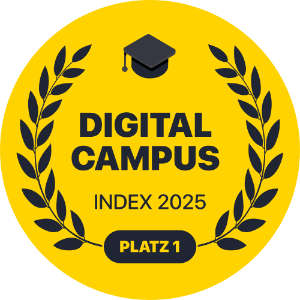Departmental Journalism
Environment
Study overview
Environment
"Climate change is the greatest danger in the history of mankind." Since drought-summer and heavy rainfall with catastrophic floods have become more frequent in Germany, the findings formulated by Ban Ki Moon (then UN Secretary-General) at the World Climate Conference in Paris in 2014 have been gaining acceptance. People are becoming increasingly aware of environmental issues. Whether it's coal phase-out, reactor safety and electromobility, the debate on limit values for nitrogen oxides or the diesel scandal, glyphosate or insect deaths: the key question is whether we can still breathe in unfiltered air and drink water in our world without health risks, and whether we can still live as we do today. Environmental issues have reached central dimensions, both politically and economically - not just regionally, but globally.
Anyone who specialises in environmental issues can therefore do nothing wrong in the current situation. There is an immense need for information and often uncertainty, because issues such as energy system transformation, emissions trading or which agriculture should receive agricultural subsidies in the future often involve a lot of money. Therefore armies of lobbyists are active and deliver "facts" free of charge - both serious information and disinformation, the latter in the guise of serious studies and supposed facts. As counterweight it needs environmental journalists, who can classify, above all however the fact situation critically reflect. Citizens, consumers, but also politicians need independently researched facts in order to make meaningful decisions.
Depending on the topic, different scientific fields overlap in the field of the environment - sometimes it is more about medical, sometimes it is about resource issues with economic interests, about ecological connections or about social aspects of our lifestyle. Students who specialise in the environment first learn the big picture.
Based on basic biological, ecological and chemical-physical knowledge, they get involved in questions of the climate situation and energy supply, deal with regional and global challenges for sustainable and resource-saving developments, gain insights into political or legal requirements and economic opportunities in the field of new environmental technologies and critically question the green boom in various areas of life. Parallel to the thematically in-depth teaching units, they apply the knowledge they have learnt in various multimedia project modules directly to journalistic practice.
Due to the cross-media study structure, graduates of the course are later qualified for all media areas and can become active as environmental journalists in specialist editorial departments as well as in public media with different target groups.
© 2025 Hochschule Ansbach

